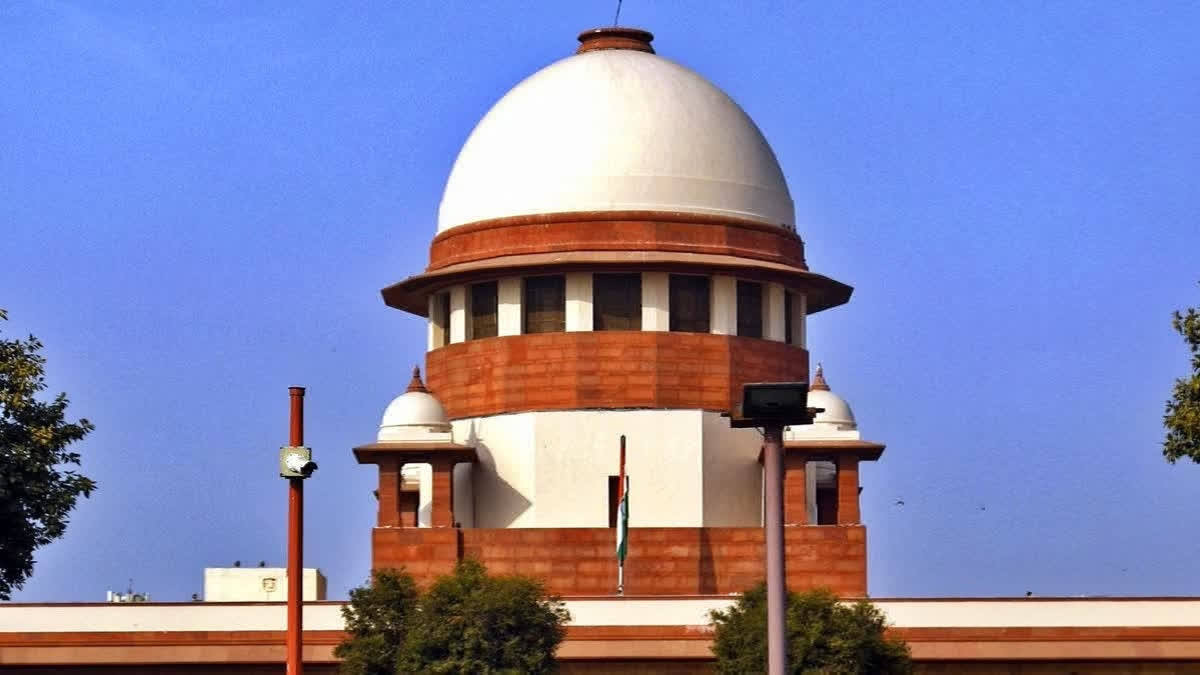New Delhi: For nearly two decades Jogeshwar Swain, a constable in the Border Security Force (BSF), fought a long and draining legal battle against his dismissal for allegedly clicking pictures of a lady doctor while she was taking a bath. Nobody had seen him taking pictures and there was no evidence to indicate that the camera belonged to him, yet he was held guilty.
The BSF claimed that he pleaded guilty to the charge. Swain disputed the confession and said that the minutes of the proceeding recording the confession were not signed by him. Earlier this week, the Supreme Court giving credence to Swain’s contention dismissed an appeal by Centre, BSF and others, and affirmed the relief granted to him by the Delhi High Court.
Also read:Incarcerated for over 12 years in a murder case, Supreme Court orders release of 34-year-old man on ground of juvenility
A bench comprising Justices J B Pardiwala and Manoj Misra said, "When the original petitioner had raised a plea before the High Court that his confession was involuntary and that in fact no confession was made by him, there was a serious burden on the non-petitioners (i.e., the appellants herein), to satisfy the conscience of the High Court that there had been due compliance of the procedure and that the confession was made voluntarily”.
Justice Misra, who authored the Judgment on behalf of the bench, stressed, “More so when the record of evidence contained no worthwhile evidence regarding the guilt of the original petitioner”.
The bench said the Summary Security Force Court (SSFC) ought to have advised the original petitioner to withdraw the plea of guilty as per provisions of subrule (2) of Rule 142 of the BSF Rules, 1969. It was alleged that in June 2005, Swain was then 31 years old and 11 years into the job, a lady doctor requested him to leave her quarter as she was to take a bath. She noticed two camera flashes through the window of her bathroom while she was taking a bath. The doctor raised an alarm and her mother went out but could not find anyone.
The BSF authorities investigated the matter and put Swain under open arrest. During the investigation, a camera was recovered from the residential quarter of another person, who was a neighbour of that lady doctor. On completion of the record of evidence, the commandant remanded the original petitioner for trial by SSFC. The SSFC held its proceedings on July 23, 2005, wherein the original petitioner claimed to have pleaded guilty and was dismissed from service.
Swain claimed that while recording the evidence, the prosecution witnesses were not offered for cross-examination; there was no evidence forthcoming against the original petitioner in the testimony of prosecution witnesses; the reel of the camera allegedly used in the commission of the offence was not developed; and nothing incriminating was recovered from the possession of the original petitioner. Therefore, there was no reason for making a confessional statement.
The Director General, BSF, New Delhi, dismissed his statutory appeal. He moved the High Court, which set aside the punishment of dismissal imposed upon Swain and issued a direction that he would be entitled to full consequential benefits except salary to the extent of 50%. The Centre and others challenged the High Court delivered on February 21, 2013, and another order by the High Court passed on November 22, 2013, by which it dismissed their review petition, though certain observations made in the earlier order were recalled.
The apex court, in a judgment delivered on September 5, said, “Taking into account that the minutes of the proceedings recording the plea of guilty did not bear the signature of the original petitioner, in our considered view, the High Court was justified in finding the dismissal of the original petitioner on the basis of the plea of guilty unwarranted and liable to be set aside in exercise of powers under Article 226 of the Constitution of India”.
The apex court observed, “What is important is that the house from where the camera was recovered was not the house of the original petitioner but of another constable who had his house adjoining the quarter where the lady doctor had taken her bath. Interestingly, there was no evidence to indicate that the said camera was of the original petitioner”.
Justice Misra said, “In these circumstances, where was the occasion for the original petitioner to make a confession of his guilt when there was hardly any evidence against him”. He added that none had seen him clicking photographs and the lady doctor also did not inculpate the original petitioner though she might have suspected the original petitioner.
“The High Court was also justified in not re-opening the proceeding from the stage where the error crept in by noticing that it would serve no useful purpose as there was hardly any evidence on record and nearly a decade had passed since the date of the incident”, observed the apex court.
Also read:'Not feasible release any water from reservoirs in Karnataka to Tamil Nadu after September 12', SC told on Cauvery dispute
